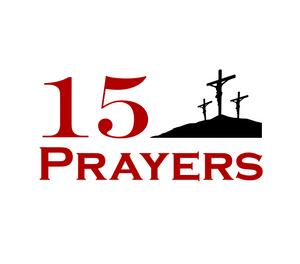
Book IV
That empire was given to Rome not by the gods, but by the One True God.
Chapter 1
Of the things which have been discussed in the first book.
Chapter 2
Of those things which are contained in Books Second and Third.
Chapter 3
Whether the great extent of the empire, which has been acquired only by wars, is to be
reckoned among the good things either of the wise or the happy.Chapter 4
How like kingdoms without justice are to robbers.
Chapter 5
Of the runaway gladiators whose power became like that of royal dignity.
Chapter 6
Concerning the covetousness of Ninus, who was the first who made war on his neighbours,
that he might rule more widely.Chapter 7
Whether earthly kingdoms in their rise and fall have been either aided or deserted by the help
of the gods.Chapter 8
Which of the gods can the Romans suppose presided over the increase and preservation of their empire, when they have believed that even the care of single things could scarcely be committed to single gods.
Chapter 9
Whether the great extent and long duration of the Roman empire should be ascribed to Jove,
whom his worshippers believe to be the chief god.Chapter 10
What opinions those have followed who have set divers gods over divers parts of the world.
Chapter 11
Concerning the many gods whom the pagan doctors defend as being one and the same Jove.
Chapter 12
Concerning the opinion of those who have thought that God is the soul of the world, and the
world is the body of God.Chapter 13
Concerning those who assert that only rational animals are parts of the one God.
Chapter 14
The enlargement of kingdoms is unsuitably ascribed to Jove; for if, as they will have it, Victoria is a goddess, she alone would suffice for this business.
Chapter 15
Whether it is suitable for good men to wish to rule more widely.
Chapter 16
What was the reason why the Romans, in detailing separate gods for all things and all
movements of the mind, chose to have the temple of Quiet outside the gates.Chapter 17
Whether, if the highest power belongs to Jove, Victoria also ought to be worshipped.
Chapter 18
With what reason they who think Felicity and Fortune goddesses have distinguished them.
Chapter 19
Concerning Fortuna Muliebris.
Chapter 20
Concerning Virtue and Faith, which the pagans have honoured with temples and sacred rites,
passing by other good qualities, which ought likewise to have been worshipped, if deity was
rightly attributed to these.Chapter 21
That although not understanding them to be the gifts of God, they ought at least to have been
content with Virtue and Felicity.Chapter 22
Concerning the knowledge of the worship due to the gods, which Varro glories in having
himself conferred on the Romans.Chapter 23
Concerning Felicity, whom the Romans, who venerate many gods, for a long time did not
worship with divine honour, though she alone would have sufficed instead of all.Chapter 24
The reasons by which the pagans attempt to defend their worshipping among the gods the
divine gifts themselves.Chapter 25
Concerning the one God only to be worshipped, who, although His name is unknown, is yet
deemed to be the giver of felicity.Chapter 26
Of the scenic plays, the celebration of which the gods have exacted from their worshippers.
Chapter 27
Concerning the three kinds of gods about which the pontiff Sceevola has discoursed.
Chapter 28
Whether the worship of the gods has been of service to the Romans in obtaining and
extending the empire.Chapter 29
Of the falsity of the augury by which the strength and stability of the Roman empire was
considered to be indicated.Chapter 30
What kind of things even their worshippers have owned they have thought about the gods of
the nations.Chapter 31
Concerning the opinions of Varro, who, while reprobating the popular belief, thought that their
worship should be confined to one god, though he was unable to discover the true God.Chapter 32
In what interest the princes of the nations wished false religions to continue among the
people subject to them.Chapter 33
That the times of all kings and kingdoms are ordained by the judgment and power of the true
God.Chapter 34
Concerning the kingdom of the Jews, which was founded by the one and true God, and
preserved by Him as long as they remained in the true religion.

